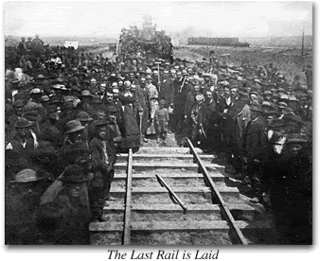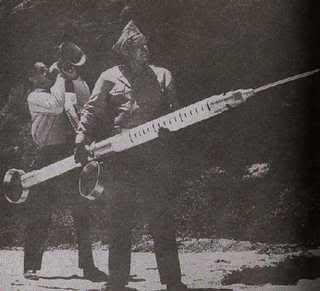
I have started saying it almost every day, and I know it has become annoying. "I wish we could get married here!" Sigh. It is almost always followed by a sigh.
We have no money to get married. We can barely afford a marriage license and a City Hall appointment. But I dream about a big hall with vaulted ceilings, an open bar, a dance band, and all the people I love who support us every day just because we shack up together.
OK, it's pretty clear that I am dreaming about the party, not the wedding. I can't imagine what I'll wear. I can't imagine what music we'd play, or whether we would do a hokey walk down the aisle.
My partner is a no-nonsense girl, or at least, BELIEVES she is a no-nonsense girl. This means she eschews sentiment. "Why have a wedding?" she asks, exasperated. She says this often when I say, "I wish we could get married here!" (Sigh). She thinks weddings are expensive and stuffy and no fun, especially for the people getting married. She's happy to go to City Hall and then celebrate at a bar. But she was a Mormon, and married once. Her wedding was a restricted ceremony in the temple, her wedding night a huge disappointment. Her reception was the day after the wedding, and filled with the knowledge of impending misery. Her divorced parents spent the day not speaking to each other. There was no alcohol.
Why get married, indeed.
But I CAN imagine a party. I can imagine garlands of flowers, and people in nice clothes. I can imagine our daughter carrying the rings, or strewing rose petals, or just toddling shyly down the aisle (I guess I imagine she will already be walking).
I imagine the friends who brought us food when we were in the hospital with her showing up and dancing with us. I imagine twinkly lights and our families, who have never met, meeting each other at last.
I imagine wonderful little stuffed things to eat. I imagine martinis and champagne.
There are lots of critiques of marriage out there, and critiques of monogamy, respectability, domestication, and the couple form. They are all valid. Marriage shouldn't be the thing you have to do to get health care, or hospital visitation, or de facto parenthood, or survivor benefits, or pensions, or your lover's estate tax-free. But the fact is, if you have marriage, you can get those things, and making marriage more available begins expanding all sorts of other rights to LGBTQ people. Begins. And that's what is important.
My favorite wedding I ever attended was for graduate school friends who had a combination Christian and Jewish ceremony. As they stood under the chuppa, the Rabbi spoke about its four corners, like a roof over their heads, a roof supported by all of us supporting them in their togetherness, with four walls open to all those who loved them, and who they loved in turn. I loved the image of love as a house, not just to contain two people, but open to the winds, a space for two people be something greater than two alone.
I remember that wedding, and I wonder if I will ever have one like it, and I think maybe I won't live to see marriage for us out here, especially if hateful amendments like California's proposition 8 are allowed to enshrine discrimination into state constitutions. Still, the states continue to fall, one by one, to the neutral application of the principle of equal treatment. The Advocate this week called the cluster of northeast states with same-sex marriages and civil unions a "corridor of love" stretching from New Hampshire to New Jersey. I thought that was lovely. I prefer to think of the northeast corridor and California like two ends of the transcontinental railroad, creeping across the landscape, making the flow of love and commerce easier, uniting a divided country. There would be some sort of suitable gay ceremony, hopefully with lots of jokes about what "driving the spike" might really mean. I hope that railroad makes it here someday. I like to imagine that the driving of the euphemistic golden spike uniting both sides will happen right here, in a gay neighborhood of our very own city, and that when it happens we will feel as if our spaces are opening out into the world, beyond our houses and our selves, connecting all of us.

